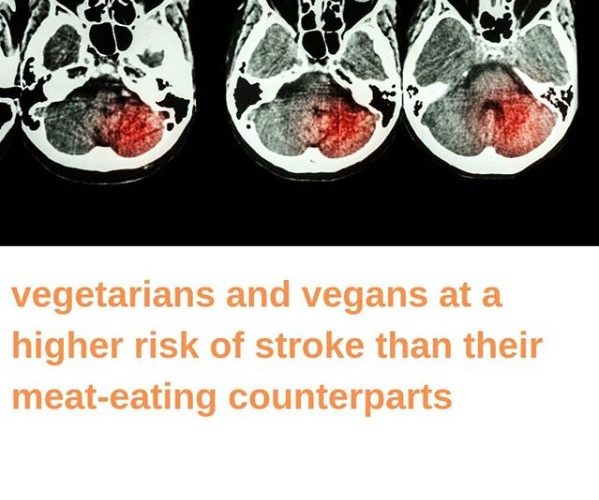Vegetarians and vegans may be at a higher risk of stroke than their meat-eating counterparts.
Those who don’t eat meat have a lower chance of coronary heart disease.
Vegetarian and vegan diets have become increasingly popular in recent years, partly due to perceived health benefits, as well as concerns about the environment and animal welfare.
For ischaemic heart disease, some but not all previous studies reported significantly lower risks of mortality from ischaemic heart disease in vegetarians than in non-vegetarians.
For stroke, two previous reports, including one that included EPIC-Oxford data, found no significant differences in risk of total stroke deaths between vegetarians and non-vegetarians.
This study showed that fish eaters and vegetarians (including vegans) had lower risks of ischaemic heart disease than meat eaters
Vegetarians (including vegans) had higher risks of haemorrhagic and total stroke than meat eaters
BMJ 2019; 366 doi: https://doi.org/10.1136/bmj.l4897 (Published 04 September 2019)
Cite this as: BMJ 2019;366:l4897
EPIC-Oxford study, a cohort in the United Kingdom with a large proportion of non-meat eaters, recruited across the country between 1993 and 2001.
48,188 participants with no history of ischaemic heart disease, stroke, or angina (or cardiovascular disease) were classified into three distinct diet groups: meat eaters (participants who consumed meat, regardless of whether they consumed fish, dairy, or eggs; n=24 428), fish eaters (consumed fish but no meat; n=7506), and vegetarians including vegans (n=16 254), based on dietary information collected at baseline, and subsequently around 2010 (n=28 364).






